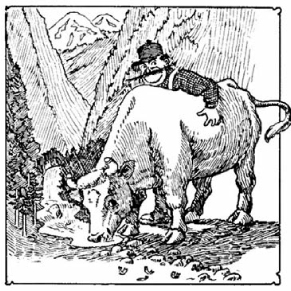Definitions and OriginsPhilosophy and Psychology of Myths |
Are myths religious? |
For the most part it is fair to say that myths are religious in that they are narratives that cultures use to illustrate or correlate to their religious rituals and theologies. This is particularly true of Creation myths and deity myths, less so of hero myths. Creation myths and deity myths are metaphorical attempts to establish a link between humans and the unknown. They provide some sort of divine justification for cultures and individuals. Hero myths, when the hero actually represents a religious tradition such as Buddhism or Christianity or the ancient Irish-Celtic religion, are clearly religious. Heroes such as the Greek Oedipus and Odysseus are at least peripherally religious in that their actions and predicaments reflect a sense of the ambiguous relationship between humans and gods. When that relationship is not evident, hero myths move closer to the world of secular folklore. Many mythical heroes simply reflect cultural pride or secular human desires for power. Paul Bunyan is such a hero as is Siegfried in the Germanic tradition. Some such heroes are clearly factually based and then mythologized for secular purposes; George Washington in the cherry tree story is such a hero.
Finally, it must be said that some myths are clearly told in the folktale tradition primarily to entertain. This is particularly true of some trickster myths, such as those of the Native American Coyote, which emphasize his sexual exploits, or even some Greco-Roman myths of gods and goddesses such as Aphrodite (Venus) and her lover Ares (Mars), who became the laughing stock of Mount Olympus when they were trapped together in a net created by Aphrodite’s wronged husband.

An illustration of Paul Bunyan and his blue ox Babe, heroes of American folklore.
